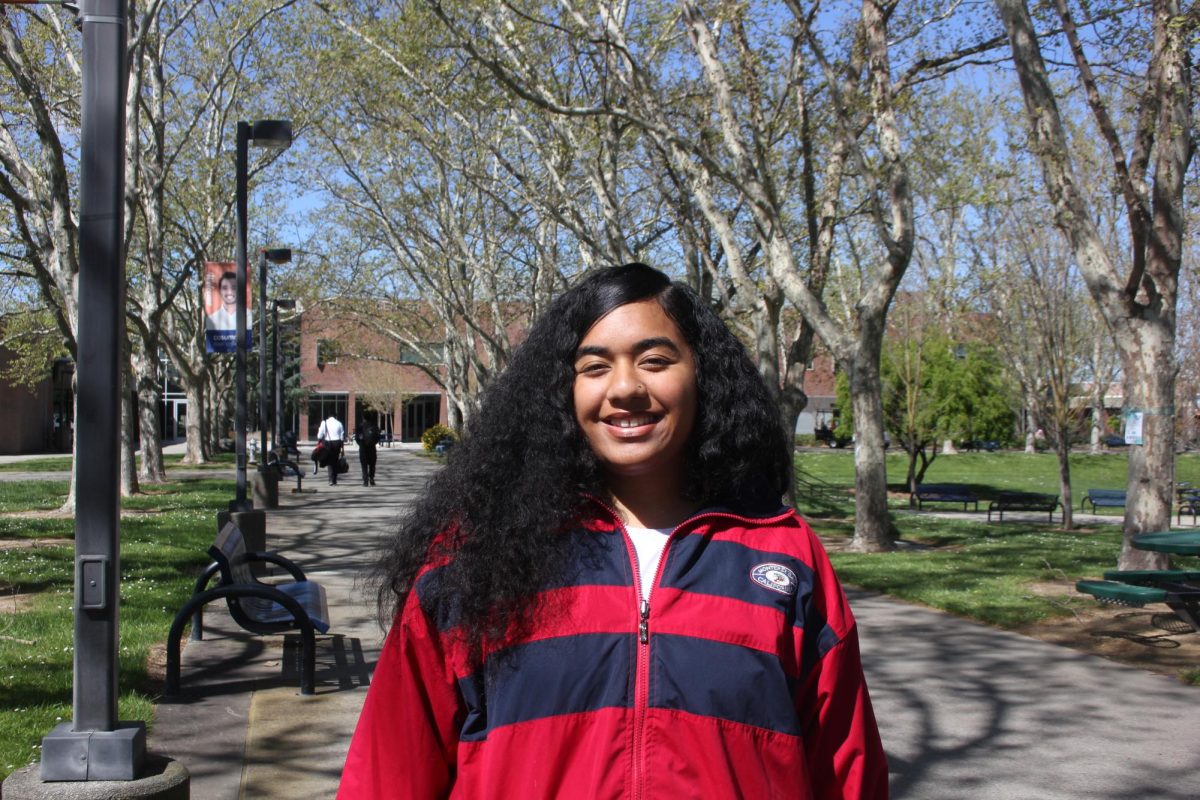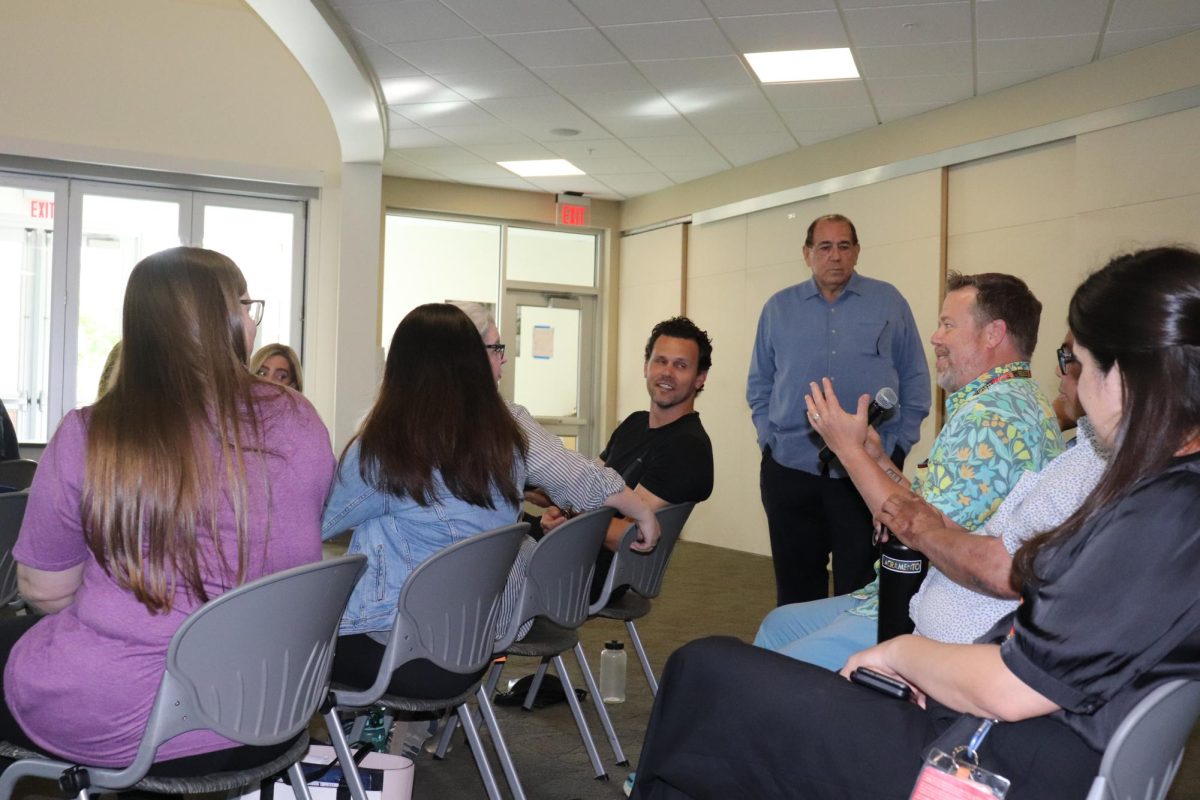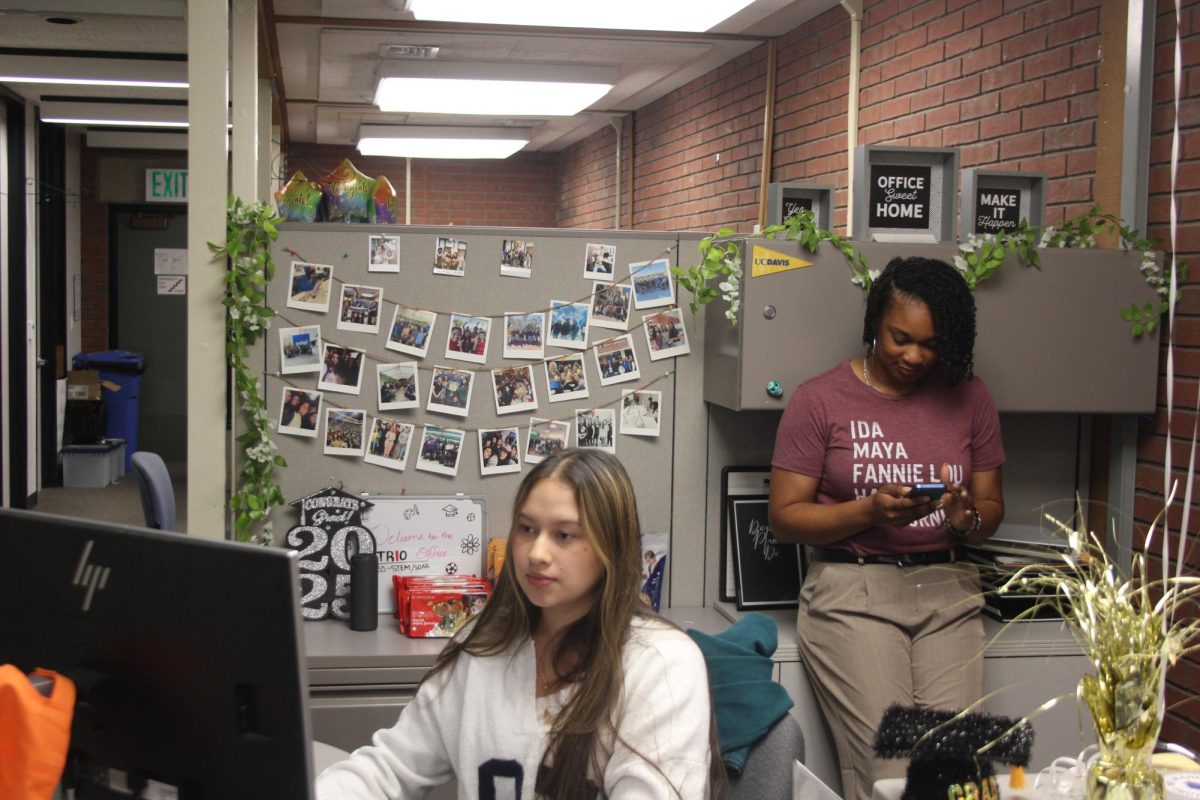Student government looks to social media, elections for student awareness
March 22, 2014
As the time for mid-term elections throughout the nation nears, closer to home elections of a different sort are about to occur.
The Associated Students of Cosumnes River College Student Senate elections are in April, and the current student senate is hoping to increase student participation.
“The student senate serves as the direct line of communication from students to the higher powers here on campus, and also in the district,” said CRC Student Senate President and Election Committee Chair DJ Mitchell. “We can then solve some issues ourselves that are campus based and those that are out of our power, or jurisdiction if you will, we can direct those issues to the proper people who can handle those issues. It’s people we have connections with that students wouldn’t as easily be able to talk to.”
The current senate has organized events such as the March in March and Welcome Days/Club It Up, in addition to vendor fairs.
“In the fall Vendor Fair we were able to get food trucks allowed on campus for the first time,” said Student Senator Joseph Johnson.
While food trucks at the Vendor Fair were an immediate victory, long-term benefits may have been gained as well.
“Money is raised through vendor fees we charge businesses to sell or promote themselves on campus,” Johnson said. “Charging vendor fees is one way the senate can raise money to fund our activities on campus.”
In the past the extent of the senate’s advertising was through flyers, but they are branching out because student participation has been low, Mitchell said. Only 233 students voted in the last election for student senate, according to statistics provided by Student Senate Advisor Winnie LaNier.
The senate is looking towards social media to increase student awareness.
“There are around 14,000 students at CRC, I understand that not every single student is able to vote, but I would love to see that number increase,” said Johnson.
Mitchell said, in an effort to alleviate this dismal amount of votes, the election will be online this year on April 8 to April 9 from 7 a.m. to 11:30 p.m.
“Students can access that from home,” Mitchell said. “They can [also] access that from their phones, which will make it a lot easier than having a polling station only set up on certain days.”
With the election on the way, many students said they are unaware of what the student senate does.
“I think [awareness of the student senate] is one of the things that need to be worked on,” said Monica Gol, 19, a sociology major. “I have no idea what they’ve done or what they need to do.”
Many students said they felt the student senate may not act on issues they had, and some, such as 19-year-old nursing major Hanna Law, said they “don’t know where to go” if they had a problem.
“I feel I don’t get to know them very well,” said Elena Marez, 21, an English major. “I know they do stuff on campus that I appreciate, but I feel like I don’t get to know them.”
The student senate makes the problems of students who contact them a “top priority,” Mitchell said.
“I really wish that more students would come forward with issues, because we don’t get that many,” said Mitchell. “Is there not any issues here? Do students not know where to take those issues? Do they just feel like, ‘Well, I’m only here for my class and then I go home. It doesn’t really matter.’ If everybody has that mindset then it’s never going to change.”
Students wishing to address issues with the ASCRC can go to the SCOR office, which is across from L111, or the Student Development Office both located in the Library building.
ASCRC is holding a candidate’s forum on April 2 from 12 p.m. to 1 p.m., in the cafeteria, where students can view each candidate’s mission statement and ask each candidate questions. Students can also view the mission statement for each candidate, which will be posted throughout the campus on flyers, Mitchell said.
Attending this type of event helps students gain information on what the senate views as a priority for students and each candidate’s agenda, Mitchell said.
“[I’m looking for a candidate] that is a good student themselves,” said Law. “If they don’t have integrity in their own student life, like with professors, with other students and grades, then no one will respect them.”





